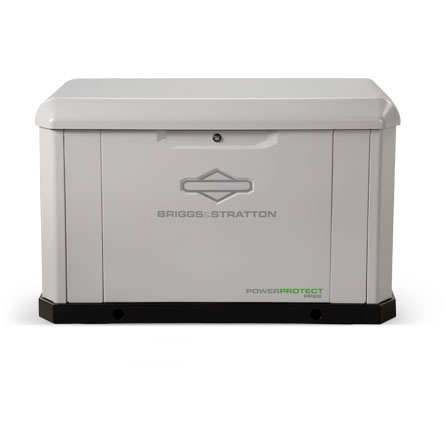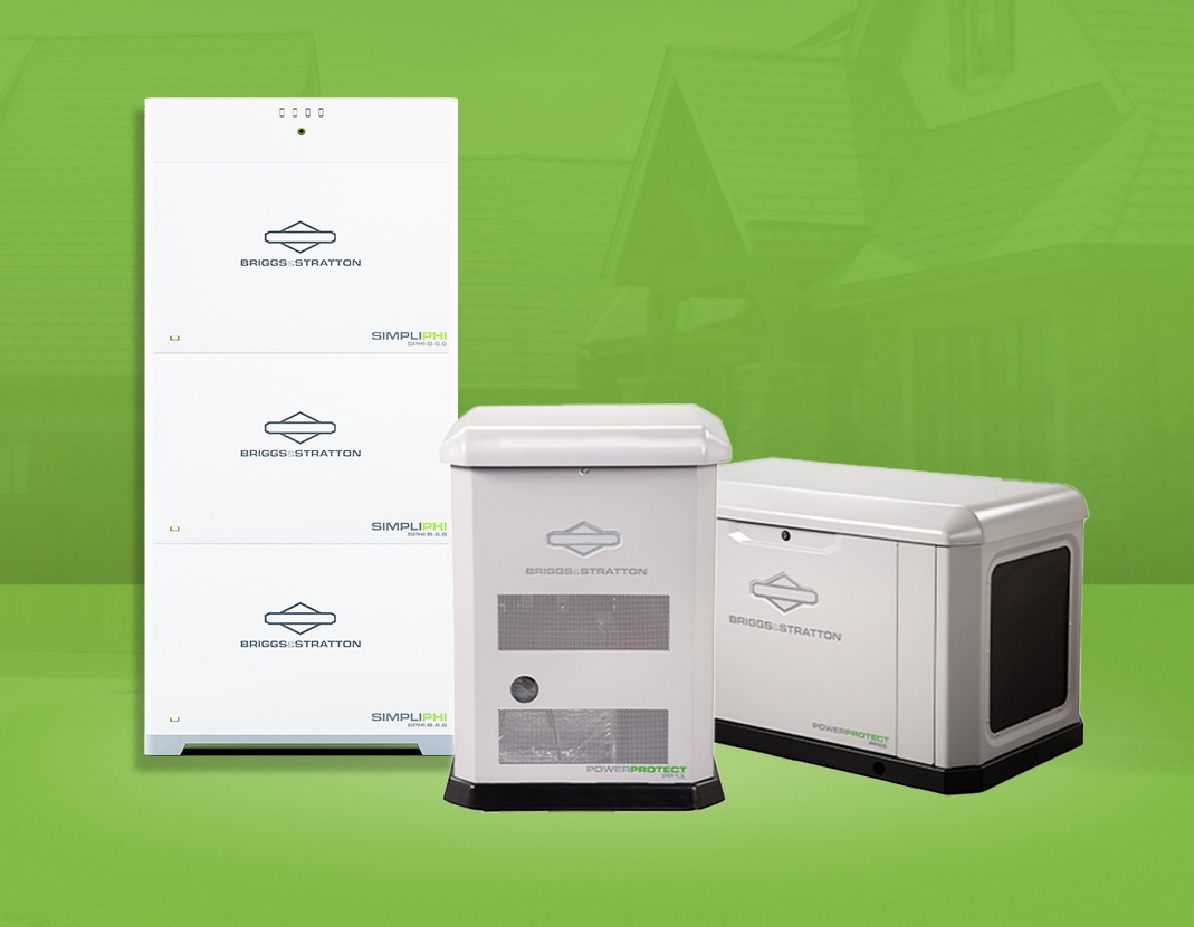If you want to buy backup power to avoid blackouts caused by extreme weather or grid outages, it helps to consider value, reliability, safety and your usage plans.
Rapid advances in renewable energy and storage technology mean you can add to your generator’s capacity or skip a generator altogether. The best lithium-ion batteries can support your needed run time and power output and take the place of or complement your backup generator. So, if you already have a generator, you can add solar + storage, or just storage, to get even greater energy independence and security.
Value
Fuel-powered generators are generally priced from $500 to $6,000, depending on size. That’s typically a lower up-front price than non-fuel solutions like lithium-ion batteries. However, suppose you factor in fuel, maintenance, and replacement costs over a decade or more. In that case, generators' long-term costs are generally higher than the cost of fuel-free alternatives.
Briggs & Stratton Battery Storage may cost more upfront than a generator for the average home. However, Briggs & Stratton Energy Solutions will provide more maintenance-free backup power over a longer period. They can also save money if you use them during hours when utility rates are higher, such as in Time of Use (TOU) and Peak Demand Charge pricing.
Depending on where you live and the local utility rates, you can significantly lower your energy costs or sell power back to the grid. Briggs & Stratton Energy Storage Systems have robust warranties, reliable operation and no fuel costs or routine maintenance.
If you add up the cost of refueling, the hours of maintenance, and any downtime due to failure, battery storage is a great choice. In addition, backup generators wouldn’t be used daily to offset utility rates, which should also be calculated in any up-front cost advantages of a generator.
Comparing equipment warranties, fuel and maintenance costs side-by-side and factoring in the opportunity to reduce your daily utility costs is the most reliable and unbiased way to compare shops. If you add up the savings, convenience, and peace of mind offered by a pre-programmed, pre-wired energy storage and management solution that is silent and fume-free, that automatically integrates your generator, battery storage, solar (if you have it) and your critical electrical loads for uninterrupted power during an outage, the advantages of Briggs & Stratton battery storage begins to add up.
The good news for those who already own a generator or are committed to buying one is that Briggs & Stratton offers pre-wired energy storage and management systems, such as our AccESS units, that can be integrated directly into your existing home or business.
Briggs & Stratton also offers smaller home backup systems, such as the Big Genny and Little Genny mobile generator systems, which can be tied in or operated independently.
Moreover, these systems can extend the life of any generator and reduce fuel consumption. The generator becomes a periodic charging source, and the Briggs & Stratton system becomes the primary power provider. The AccESS comes with a robust warranty, delivering a lower cost of lifetime ownership and a far greater return on investment than a generator alone.
Reliability
When shopping for an emergency power solution, the most important question is whether your backup solution will work when needed. The warranty is an essential indicator of reliability. Briggs & Stratton Battery Storage can store them over long periods, with a monthly self-discharge rate of less than 1%. That means you can be confident that they will be charged and ready for use in an emergency. They require no maintenance and are warranted to operate reliably for an optimal duration.
Another factor to consider is that fuel can be hard to get in a crisis, especially if many homes or businesses nearby are also losing power. Briggs & Stratton battery storage requires no fuel. The AccESS and Genny Emergency Kits can work with any charging source: grid, solar, wind, generator, or a combination. Charging to capacity takes two hours or less. They can be charged and discharged simultaneously and as often as needed.
Safety
Briggs and Stratton Lithium Iron Batteries (LFP) are rated safer by NYFD because they are unreactive and do not carry the same thermal runaway dangers as cobalt lithium-ion batteries. They are safer to use virtually anywhere: inside a home, business, or garage; in closets or RVs; sheltered in a basement; in the backyard; under a carport; or on a porch.
Not all lithium-ion batteries use the same chemistry, and each has advantages and disadvantages.
LFP battery chemistry is the safer, most environmentally benign lithium battery chemistry available.
Practical Use
One of the greatest concerns regarding backup power is fuel supply. When an emergency strikes, fuel can be challenging to find. Most filling station pumps today are powered by electricity, meaning fueling stations are also out of service if the grid goes down in a community. In a severe emergency, you might face long lines, rationing, and premium pricing if you can find a filling station with working pumps.
You can use a fuel-powered generator to charge your Briggs & Stratton Energy Storage System rather than running it as a primary power source 24/7. This will significantly reduce the amount of fuel you need.
When considering a backup power source, it's important to note that fuel-powered models produce sound, with noise levels typically ranging from mid-50 decibels to mid-80 decibels, comparable to the sound of city traffic. It's also relevant to be aware of any community noise regulations that might apply to generator usage.
Additionally, the sound produced by generators can interfere with hearing important sounds and alerts during an emergency, which is a factor to consider for safety reasons.
Briggs & Stratton LFP batteries emit virtually no noise since they do not require a motor to run them, and they don't need ancillary motors to run fans or cooling equipment.
Briggs & Stratton integrated systems are also relatively easy to transport. In sum, carefully consider all factors contributing to long-term value, reliability, safety, and practical use before choosing your backup power solution. And even if you already use a generator as a charging source, consider adding a reliable Briggs & Stratton backup battery solution.

Ready to start protecting your home?
Our Whole-House Generator Sizing Calculator allows you to select what you want to power in your home and directs you to the appropriate-sized generator system.




